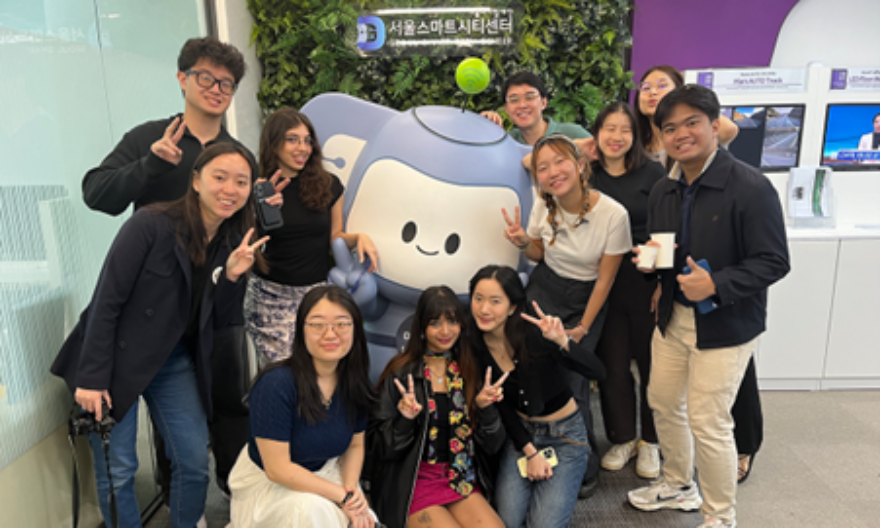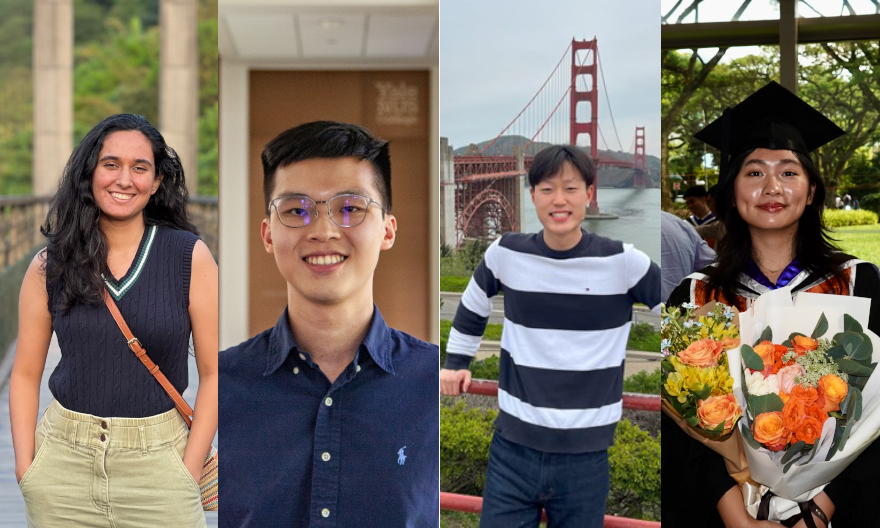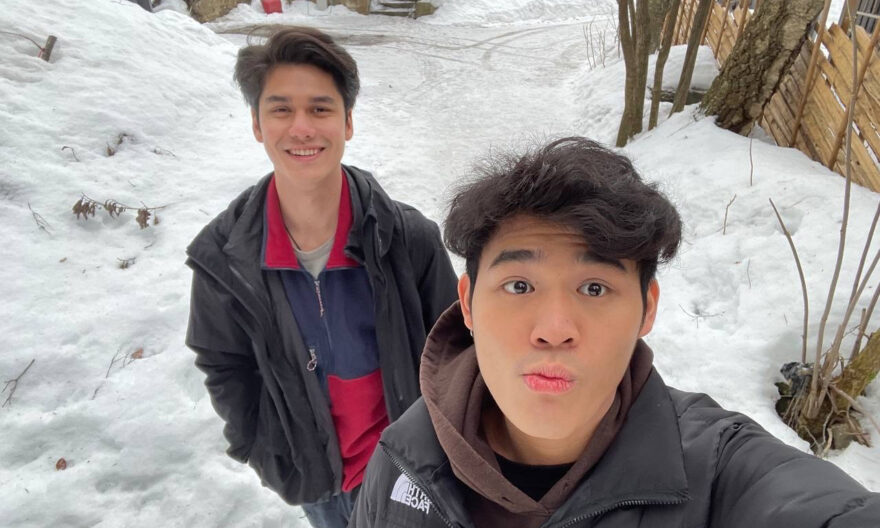Students gain hands-on research experience over the semester break
Yale-NUS College’s Summer Research Symposium 2022 features exciting research projects ranging across the social sciences, sciences, and humanities.
Propagating fungi, creating maps, and conducting research on pre-war Japanese communities were amongst the projects which students undertook under the Summer Research Programme (SRP) at Yale-NUS College this year.
Sharing their three-month long experience at the Summer Research Symposium held from 12 to 15 September 2022, the students unveiled what it was like conducting research in the humanities, social sciences and sciences alongside a faculty supervisor.
 Tamane Harata presenting on her project ‘Pre-war Japanese Communities in Southeast Asia’ at the Summer Research Symposium 2022. Photo by Tan Shan Min.
Tamane Harata presenting on her project ‘Pre-war Japanese Communities in Southeast Asia’ at the Summer Research Symposium 2022. Photo by Tan Shan Min.
Under the mentorship of Professor of Humanities (History) Naoko Shimazu, Tamane Harata (Class of 2024) visited various Japanese towns, such as Kuchinotsu and Shimabara, to collect primary evidence for her SRP research on pre-war Japanese communities and migrant workers in Southeast Asia.
 Tamane, first from left, conducting fieldwork in Japan. Image provided by Tamane.
Tamane, first from left, conducting fieldwork in Japan. Image provided by Tamane.
During her stay, Tamane – a Literature major – tackled new methodological grounds as she interviewed archivists, local researchers, and residents. The team also visited libraries, including the Japanese National Diet Library, to collect primary and secondary sources from the late 19th century onwards.
Beyond the planned itinerary, the trip had its fair share of unexpected discoveries. “During our trip, we had many valuable, yet spontaneous encounters that were made possible thanks to the people we met at the libraries and archives. For example, a librarian introduced us to an independent researcher on Japanese migrant workers who accepted our interview and provided us with extremely valuable information. Then, this independent researcher took us to her friend’s bookstore, and this friend happens to have had grandparents living in Singapore before World War II!”
 Quek Hwee Kimberly, in red, with her research team. Image provided by Kimberly.
Quek Hwee Kimberly, in red, with her research team. Image provided by Kimberly.
For her SRP project, Quek Hwee Kimberly (Class of 2025) worked with Assistant Professor of Science (Life Sciences) Ying Chang on identifying the various fungi species living in the mangrove trees of Pulau Ubin. She had to collect fungi samples from mangrove trees and identify them in the laboratory.
She also conducted a mini experiment independently on the side. With the goal of finding out how much heat a certain fungi species can tolerate, her experiment involved testing how temperatures affect the growth of different fungi species.
 Kimberly conducting research in the laboratory. Photo provided by Kimberly.
Kimberly conducting research in the laboratory. Photo provided by Kimberly.
The journey was a challenging one. Kimberly could recall vividly the hours she spent “slouched over, transferring fungal isolates from one petri dish to another in the laminar flow cabinet for two hours”. Nevertheless, she had a welcoming research environment to fall back on when she needed help.
“My fellow lab mates and supervisor immensely contributed to creating a safe and enjoyable learning environment where I learned that it is okay to make mistakes and try my best to rectify them,” she remarked.
 Thomas Bean Kent presenting at the Summer Research Symposium 2022. Photo by Tan Shan Min.
Thomas Bean Kent presenting at the Summer Research Symposium 2022. Photo by Tan Shan Min.
While Kimberly dealt with hours of hunching over laboratory equipment over the semester break, Thomas Bean Kent (Class of 2024) found himself grappling with data representation for his investigation into the characteristics of Singapore’s smart districts – such as those of one-north.
More specifically, the research delved into the complexities of these districts, in terms of whether they yielded state-intended benefits, and who got excluded from these districts.
To answer these questions, Thomas derived visualisations from publicly available data. These visuals included bar charts, box plots, and maps. The generation of these visuals tapped on Thomas’ prior knowledge on geographical information systems (GIS) and the R programming language, which he learnt in the modules he took in Yale-NUS. Thomas received guidance from Assistant Professor of Social Sciences (Urban Studies) Chaewon Ahn as well.
“With some open-source software and publicly available data, all of us can be our own data scientists and say something meaningful,” Thomas observed.
Besides student presentations, the Summer Research Symposium featured research career panels of Yale-NUS faculty, alumni, and various internship partners. The panellists offered their insights into the challenges and opportunities surrounding various research fields, including academia and risk consulting.
 ‘Research Career Beyond Academia’ held on 14 September 2022. Photo by Tan Shan Min.
‘Research Career Beyond Academia’ held on 14 September 2022. Photo by Tan Shan Min.
Associate Director of the Centre for International & Professional Experience, Zhana Sandeva, hoped that these panels would “introduce students to a variety of careers that involve research, and help them make informed choices about their professional journeys”. She also hoped that “the students will continue the conversation with the panellists and build stronger bonds within and outside the Yale-NUS community”.





